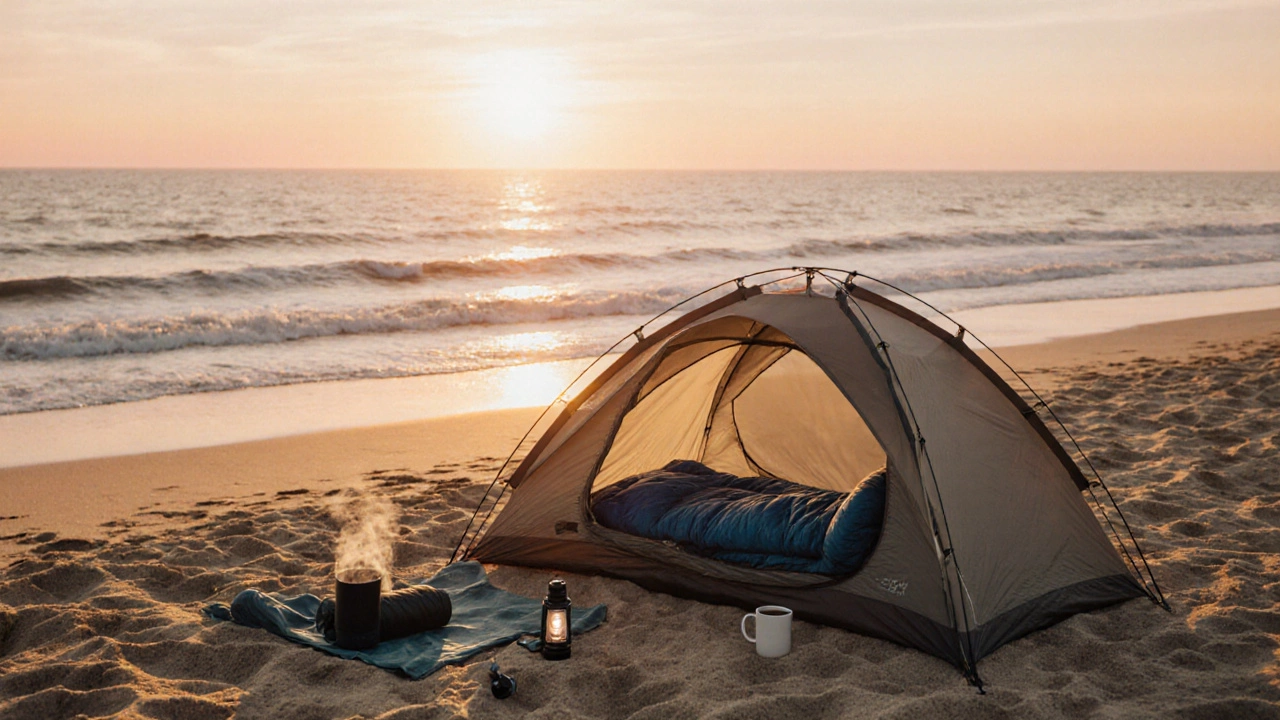Coastal Camping Rules: What You Can and Can’t Do by the Sea
When it comes to coastal camping rules, the legal and practical guidelines for setting up camp near the ocean or shoreline in the UK. Also known as beach camping regulations, these rules vary wildly depending on where you are—from the rugged coasts of Scotland to the busy beaches of Cornwall. Unlike camping in a national park, you can’t just roll up with a tent and call it a day. Many coastal areas have strict bylaws, seasonal bans, and even fines for pitching up without permission.
One of the biggest misunderstandings is thinking that if land is public, you can camp on it. That’s not true. In England and Wales, wild camping, sleeping outdoors on land without formal permission. Also known as unauthorized camping, it’s generally illegal unless you have the landowner’s consent. Scotland’s Scottish Outdoor Access Code, a legal framework that grants responsible access to most land and water for recreation. Also known as right to roam, it allows more flexibility, but even there, you can’t camp right next to a beach if it’s private property or protected habitat. Then there’s the issue of beach campsite permits, official authorizations required to set up camp on certain beaches, often issued by local councils or land managers. Also known as coastal camping licenses, they’re rarely advertised and usually only available for organized sites. You might find signs saying "No Camping"—those aren’t suggestions. Fines can hit £1,000 in some places.
It’s not just about legality. Coastal areas are fragile. Sand dunes take decades to grow and can be destroyed in one night by a tent peg. Seashells, driftwood, and even rocks are part of the ecosystem—removing them breaks natural processes. And let’s not forget the litter. A single plastic bag can kill seabirds. That’s why Leave No Trace, a set of outdoor ethics focused on minimizing human impact on nature. Also known as responsible camping, it’s not just a slogan—it’s the law in many protected coastal zones. If you camp by the sea, you’re a guest. You don’t own the beach. You don’t own the dunes. You don’t own the wildlife. You just get to pass through.
So where can you legally camp on the coast? Some places, like parts of the Northumberland coast or the Pembrokeshire coast path, allow it if you’re discreet, far from homes, and gone by sunrise. Others, like the Lake District’s coastal fringes or the Jurassic Coast, ban it outright. The key is checking local council websites before you go. Don’t rely on forums or Instagram posts—they’re often outdated or wrong.
Below, you’ll find real-life guides that break down exactly where you can camp, what the fines are, how to stay safe, and what gear actually works on sand. No fluff. No guesses. Just what you need to know to avoid trouble and enjoy the coast the right way.
Free Beach Camping in California: Where, How, and What to Know
Discover where you can legally camp for free on California's beaches, learn the rules, safety tips, and gear checklist to enjoy a no‑cost shoreline night without getting fined.
